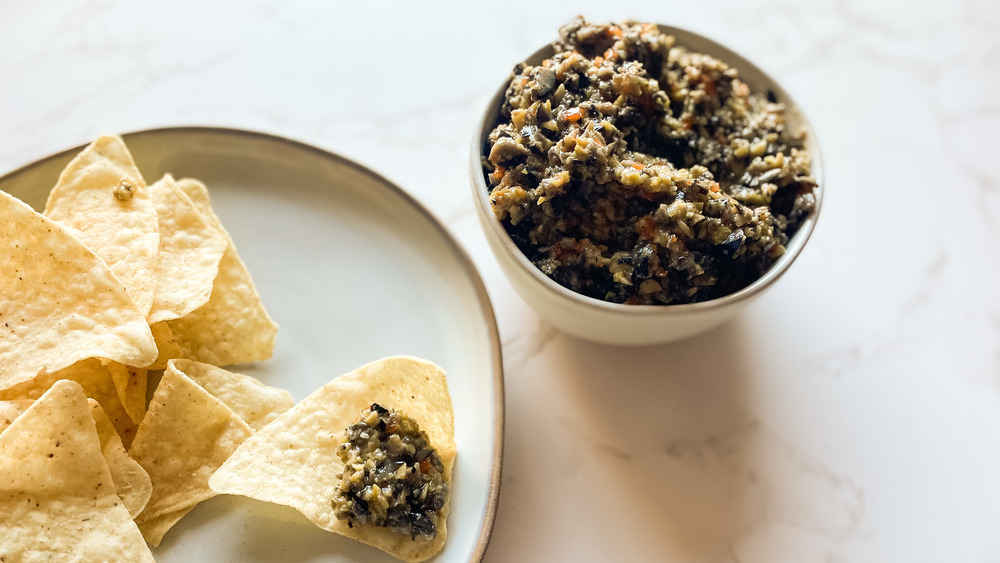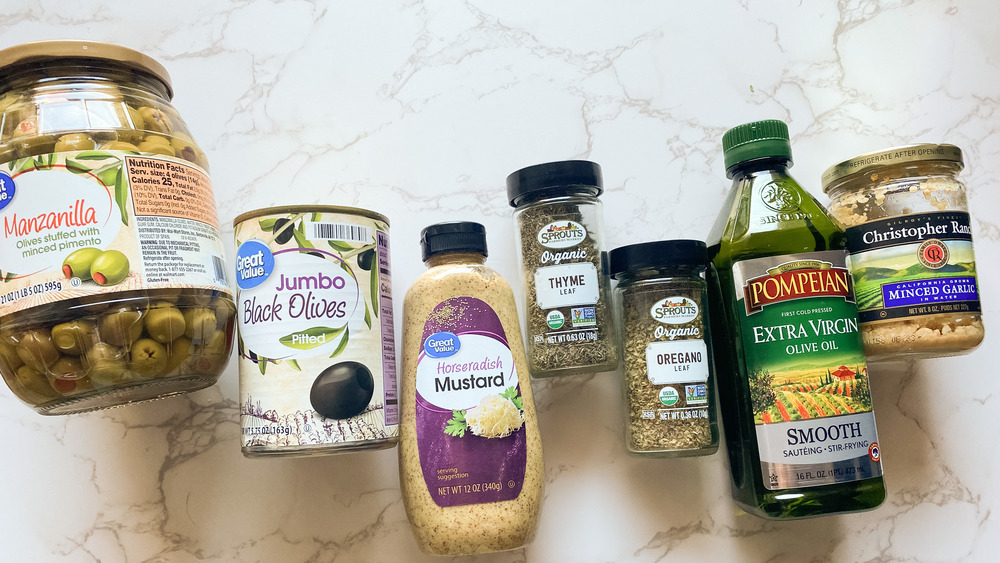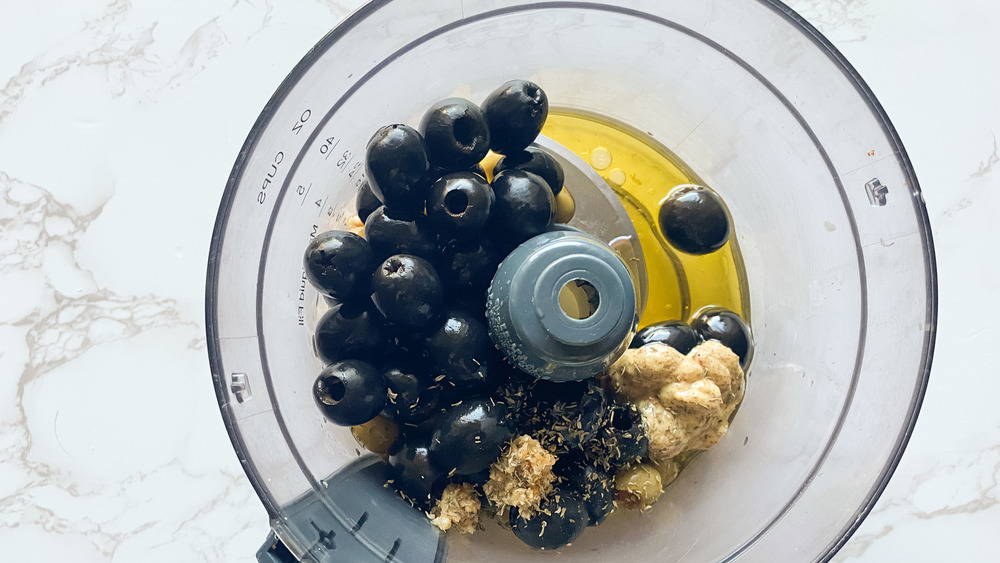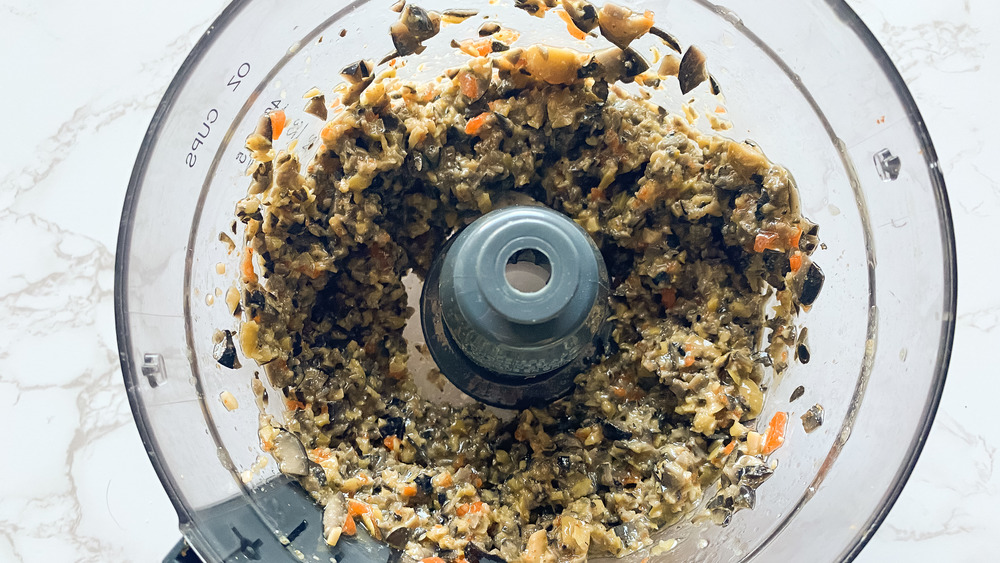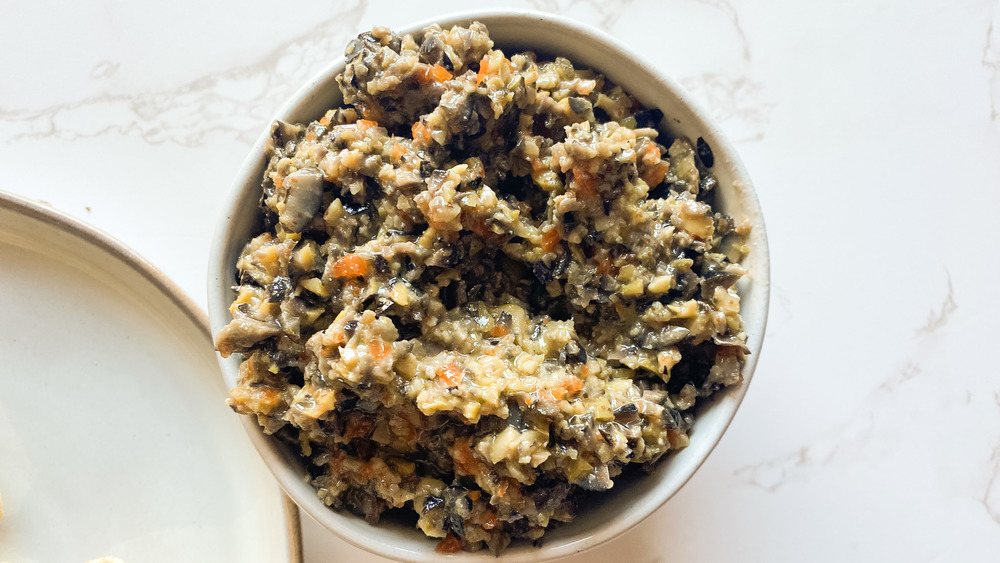Tapenade Recipe
Olive tapenade is one of those tasty, super simple appetizers we should all make at home more often. Sure, you can buy it in a jar from your local supermarket, but doesn't it taste so much better when it's fresh out of your food processor?
This easy olive tapenade recipe is from recipe developer Kristin Carli, who creates wholesome menu options through Camelback Nutrition & Wellness and her blog, Mostly Green. In Carli's opinion, tapenade isn't just a snack or app, though. "This recipe is one of my favorites to spread on sandwiches to add flavor. I love the zingy, salty flavor it provides," she says. Tapenade as a condiment for your sandwich? Good call.
Keep reading to get detailed instructions on how to make this tapenade in your own kitchen. This recipe cranks out enough tapenade for six servings, but be sure to double up if your party is going to be larger than that.
Gather the ingredients for tapenade
All of the ingredients for this tapenade are easy to find and easy to prep. And lucky for you, there will be no chopping required if you buy the already-minced garlic in a jar.
For this tapenade recipe, make sure you have one 15-ounce can of whole pitted black olives, ⅔ cup of pimento-stuffed green olives, ⅓ cup of olive oil, one teaspoon of minced garlic; two teaspoons horseradish mustard, ½ teaspoon of dried thyme, and ½ teaspoon of dried oregano.
We asked if there is any wiggle room with the type and amount of olives used in this recipe, and, according to Carli, "You can sub in any olives you like."
Add tapenade ingredients to the food processor
The next step in this tapenade recipe is adding all the ingredients to a food processor. The food processor is pretty clutch to execute this recipe successfully. What do you do if you don't have one handy? According to Carli, "A food processor is best, [but] if you have a small blender, that would substitute fine, but large blenders would have trouble pulsing this mixture due to the volume. If someone has neither, they could chop up the olives very small." You heard it straight from the source — you will have some chopping to do if you don't have a small blender or food processor.
Pulse tapenade ingredients in the food processor
Once all the ingredients are in the food processor, the recipe calls for you to "pulse until chunky in texture." Depending on the appliance you're using (a small blender or a food processor), this shouldn't take but about four or five pulses.
You can pulse more or less depending on personal preference, but tapenade is usually characterized by small chunks — not a pureed texture. You should be able to spread it on a cracker or piece of bread easily, but you still want to be able to distinguish it from a smooth spread like creamy hummus.
Serve tapenade, and enjoy
All you have to do now is scrape the tapenade out of the food processor into a small bowl, and serve. Homemade tapenade obviously tastes great fresh, but should keep in the fridge in an airtight container for up to a week.
There are lots of options for how and when to serve this olive tapenade. "Besides chips, this serves as a great sandwich spread with turkey and provolone or an Italian sandwich," Carli suggests. When used as a dip, she says, "I love vegetable chips dipped in this as well as water crackers. It makes a great appetizer, too!"
Tapenade
Whether you enjoy it on crackers or spread onto your sandwich, nothing beats this savory olive tapenade recipe.
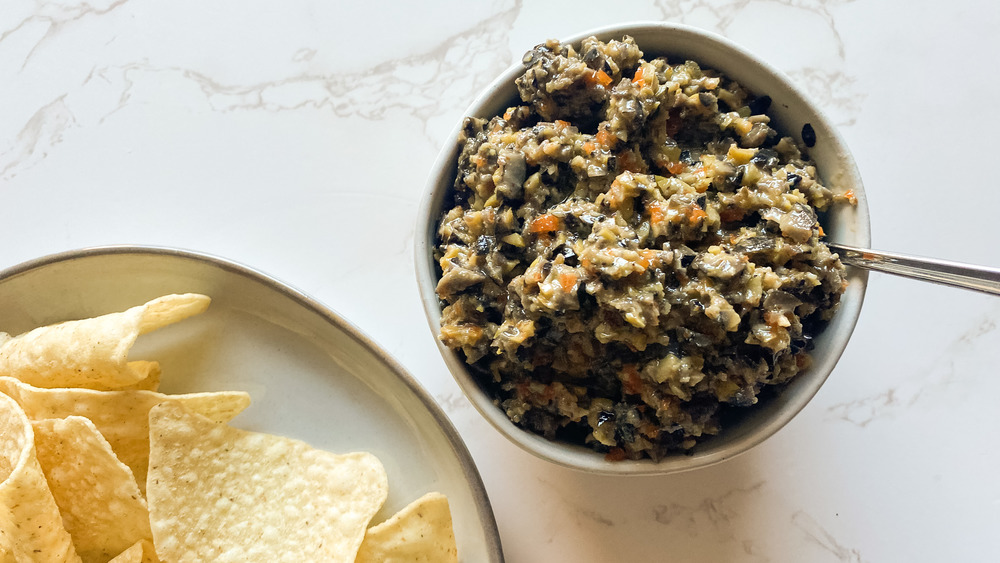
Ingredients
- 15-ounce can whole pitted black olives
- ⅔ cup pimento-stuffed green olives
- ⅓ cup olive oil
- 1 teaspoon minced garlic
- 2 teaspoons horseradish mustard
- ½ teaspoon dried thyme
- ½ teaspoon dried oregano
Directions
- Place all ingredients in a food processor. If you don't have a food processor on hand, you can sub it for a small blender (do not use a large blender, as it will have trouble pulsing this mixture due to the volume).
- Pulse until chunky in texture.
Nutrition
| Calories per Serving | 209 |
| Total Fat | 21.7 g |
| Saturated Fat | 2.9 g |
| Trans Fat | 0.0 g |
| Cholesterol | 0.0 mg |
| Total Carbohydrates | 5.3 g |
| Dietary Fiber | 2.9 g |
| Total Sugars | 0.1 g |
| Sodium | 747.2 mg |
| Protein | 0.8 g |
